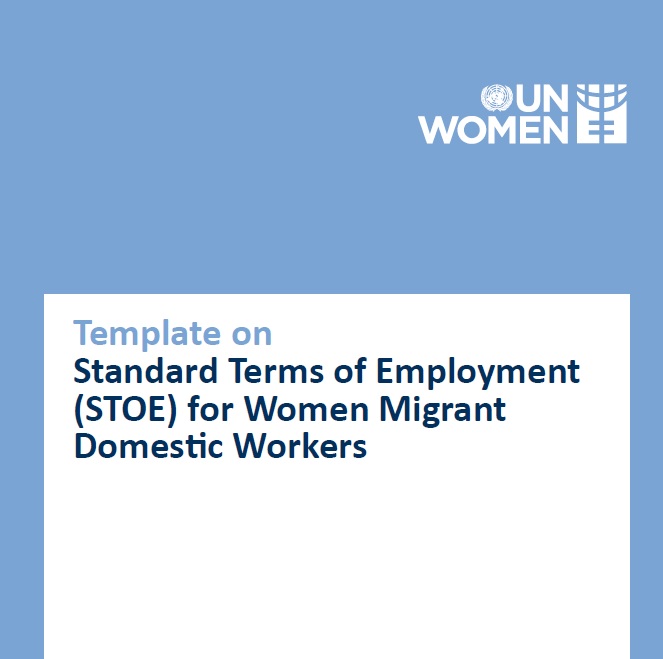
Establishing a Standard Terms of Employment (STOE) for women migrant domestic workers is crucial as they are excluded from national labour laws of most countries, both countries of origin and destination. They are doubly vulnerable through their status as migrants and as woman. Furthermore, domestic work takes place in informal, private settings and thus it is very important to formalize domestic work to protect the rights of migrant domestic workers. Countries of origin and destination agree on the importance of having a standard employment contract to protect workers despite gaps in the legal framework, and UN Women built on this agreement and initiated the development of a gender responsive STOE for migrant domestic workers. Countries of origin and destination have used different standard contracts, and UN Women advocates that employment contracts adhere to international standards of labour and human rights protection for women migrant domestic workers.
UN Women Regional Office for Asia and the Pacific instituted a participatory and consultative process to develop a gender responsive model STOE template that may be executed between the contracting parties namely the migrant domestic worker and the employer. This process entailed collecting inputs and insights from multi-stakeholders in Asia.
The draft is meant as a template for countries of origin and destination in developing bilateral labour agreements and STOEs. If agreed by both countries, the model contract will be enforceable under the laws of the country of employment and legal mechanism for its enforcement shall be provided by the government of the country of employment. This template tries to address the gaps in existing standard employment contracts being used by countries such as social protection including maternity protection, rest day, limit on working hours, and protection from abuse among others. While we advocate for a standard terms of employment for migrant domestic workers, the advocacy for the inclusion of migrant domestic workers to existing labour laws should continue.
The draft was a result of the following processes:
- Literature review of existing standard employment contracts and studies that examine standard terms of employment (STOE) and bilateral labour agreements.
- Focused-group discussions (FGDs) organised by Migrant Forum in Asia in Hong Kong, Nepal, the Philippines and Singapore
- Peer Review conducted by UN Women with regional organisations and relevant UN agencies including ILO
- Peer review feedback consolidation
- Legal review conducted by Migrant Forum in Asia
Click To Download a copy of the Standard Terms of Employment